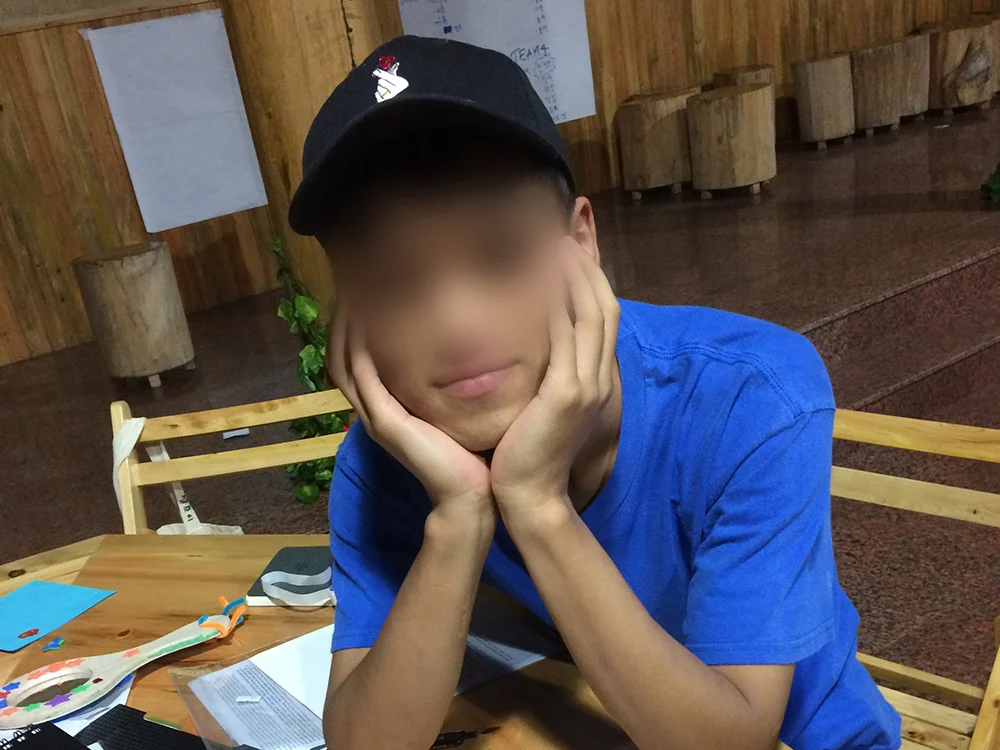Byung-woo at one of our retreats for North Korean children.
“Byung-woo” sat and thought about his question for several moments before he spoke with one of Crossing Borders’ missionaries two years ago.
“How can I be thankful to God,” Byung-woo asked, “ if he let my mom die?”
The question was not emotional but was posed with unwavering focus. Byung-woo wasn’t frustrated or upset. Byung-woo was curious if there was an answer.
In 2019, Byung-woo turned 19-years-old and graduated from high school. He is a hardworking young man. In the orphanage run by Crossing Borders’ Orphan Care Program, it was common to find Byung-woo studying at his desk with the other children. Even when the Crossing Borders orphanage closed this year and Byung-woo relocated to a dormitory, his efforts continued. Byung-woo dreams big. The young men and women around Byung-woo, even his teachers, see him as a rising star.
Byung-woo’s father is a disabled Chinese man who lives far away in the country. Byung-woo mentions him often and how much his father needs his son’s help. Byung-woo wants to care for his ailing dad. When Byung-woo was about 10-years-old, his father and mother saw how prodigiously determined he was. His parents, wanting to see him grow, sent him to a boarding school far from home. But not long after he was sent away, Byung-woo received a phone call from his father telling him to quickly return home. His mother was dying. He returned home and shortly after, she died.
Byung-woo says he misses his mom’s cooking. He remembers that she was a Christian, rare for a North Korean refugee living in hiding in China. Byung-woo’s mom would drag him to church, promising delicious treats after service. The two of them spent Sundays together. And Byung-woo thinks about his mom, his last moments with her, her passing.
Crossing Borders staff constantly applauds Byung-woo’s unwavering spirit, his grit and his endurance. But somewhere beneath Byung-woo’s great perseverance, there is fear. There is a fear of an obstacle he will not be able to traverse. With his father’s life on his shoulders and an endless series of hurdles he must cross, what if Byung-woo fails? Byung-woo thinks of his faithful and loving mom, he thinks about her death, and he thinks about whether or not he will find the strength to push through the difficulties in his way.
When seeing the lives of the North Korean children in the Orphan Care program, the temptation for hopeless acceptance is overbearing. Children who have been abused and abandoned by powers outside of their control do not have an answer to why they must suffer.
The truth that must be shared with Byung-woo and many children like him, time and time again, is that healing, compassion and love are real. In response to the overwhelming pressure on Byung-woo and the disorienting power of loss in the lives of so many North Korean children, Crossing Borders longs to share the same gift that Byung-woo’s mother clung to in her moments with her son. A North Korean woman who fled from home, living in fear and in poverty, Byung-woo’s mother longed to share the gospel.
We hope that even as Byung-woo relentlessly pursues victory over his circumstances, he will find peace in faith - even in failure. We hope that whether Byung-woo is in the depths of grief, or the pressures of work, he will find grace. In the gospel, we hope that Byung-woo finds many, innumerable reasons to be thankful.


